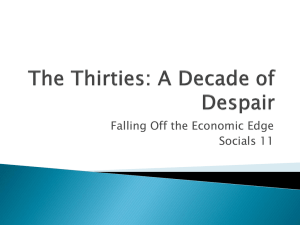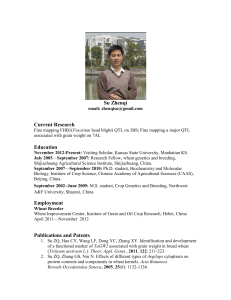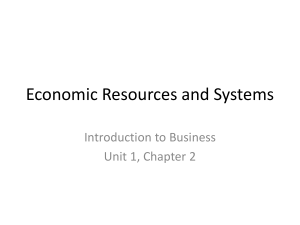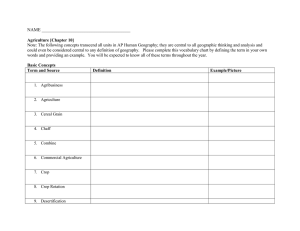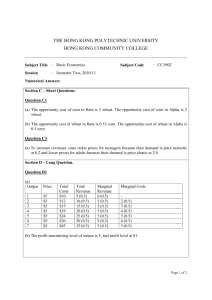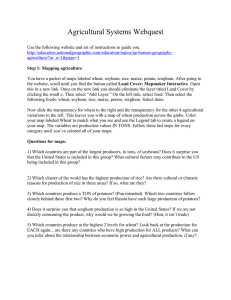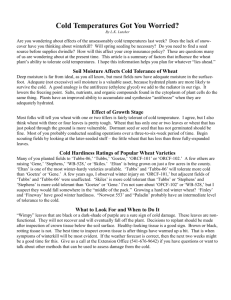pointing,” Fischbacher said. “Unfortunately, the target
advertisement
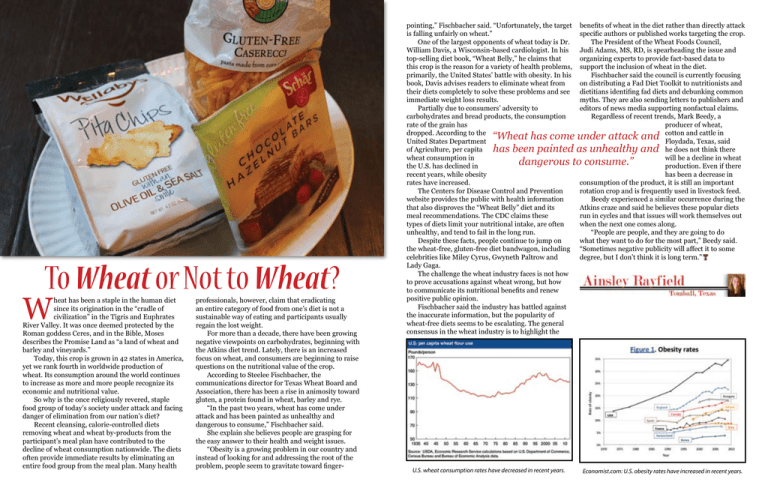
To Wheat or Not to Wheat? W heat has been a staple in the human diet since its origination in the “cradle of civilization” in the Tigris and Euphrates River Valley. It was once deemed protected by the Roman goddess Ceres, and in the Bible, Moses describes the Promise Land as “a land of wheat and barley and vineyards.” Today, this crop is grown in 42 states in America, yet we rank fourth in worldwide production of wheat. Its consumption around the world continues to increase as more and more people recognize its economic and nutritional value. So why is the once religiously revered, staple food group of today’s society under attack and facing danger of elimination from our nation’s diet? Recent cleansing, calorie-controlled diets removing wheat and wheat by-products from the participant’s meal plan have contributed to the decline of wheat consumption nationwide. The diets often provide immediate results by eliminating an entire food group from the meal plan. Many health professionals, however, claim that eradicating an entire category of food from one’s diet is not a sustainable way of eating and participants usually regain the lost weight. For more than a decade, there have been growing negative viewpoints on carbohydrates, beginning with the Atkins diet trend. Lately, there is an increased focus on wheat, and consumers are beginning to raise questions on the nutritional value of the crop. According to Steelee Fischbacher, the communications director for Texas Wheat Board and Association, there has been a rise in animosity toward gluten, a protein found in wheat, barley and rye. “In the past two years, wheat has come under attack and has been painted as unhealthy and dangerous to consume,” Fischbacher said. She explain she believes people are grasping for the easy answer to their health and weight issues. “Obesity is a growing problem in our country and instead of looking for and addressing the root of the problem, people seem to gravitate toward finger- pointing,” Fischbacher said. “Unfortunately, the target benefits of wheat in the diet rather than directly attack is falling unfairly on wheat.” specific authors or published works targeting the crop. One of the largest opponents of wheat today is Dr. The President of the Wheat Foods Council, William Davis, a Wisconsin-based cardiologist. In his Judi Adams, MS, RD, is spearheading the issue and top-selling diet book, “Wheat Belly,” he claims that organizing experts to provide fact-based data to this crop is the reason for a variety of health problems, support the inclusion of wheat in the diet. primarily, the United States’ battle with obesity. In his Fischbacher said the council is currently focusing book, Davis advises readers to eliminate wheat from on distributing a Fad Diet Toolkit to nutritionists and their diets completely to solve these problems and see dietitians identifing fad diets and debunking common immediate weight loss results. myths. They are also sending letters to publishers and Partially due to consumers’ adversity to editors of news media supporting nonfactual claims. carbohydrates and bread products, the consumption Regardless of recent trends, Mark Beedy, a rate of the grain has producer of wheat, dropped. According to the cotton and cattle in “Wheat has come under attack and United States Department Floydada, Texas, said of Agriculture, per capita has been painted as unhealthy and he does not think there wheat consumption in will be a decline in wheat dangerous to consume.” the U.S. has declined in production. Even if there recent years, while obesity has been a decrease in rates have increased. consumption of the product, it is still an important The Centers for Disease Control and Prevention rotation crop and is frequently used in livestock feed. website provides the public with health information Beedy experienced a similar occurrence during the that also disproves the “Wheat Belly” diet and its Atkins craze and said he believes these popular diets meal recommendations. The CDC claims these run in cycles and that issues will work themselves out types of diets limit your nutritional intake, are often when the next one comes along. unhealthy, and tend to fail in the long run. “People are people, and they are going to do Despite these facts, people continue to jump on what they want to do for the most part,” Beedy said. the wheat-free, gluten-free diet bandwagon, including “Sometimes negative publicity will affect it to some celebrities like Miley Cyrus, Gwyneth Paltrow and degree, but I don’t think it is long term.” Lady Gaga. The challenge the wheat industry faces is not how to prove accusations against wheat wrong, but how to communicate its nutritional benefits and renew positive public opinion. Fischbacher said the industry has battled against the inaccurate information, but the popularity of wheat-free diets seems to be escalating. The general consensus in the wheat industry is to highlight the U.S. wheat consumption rates have decreased in recent years. Economist.com: U.S. obesity rates have increased in recent years.
